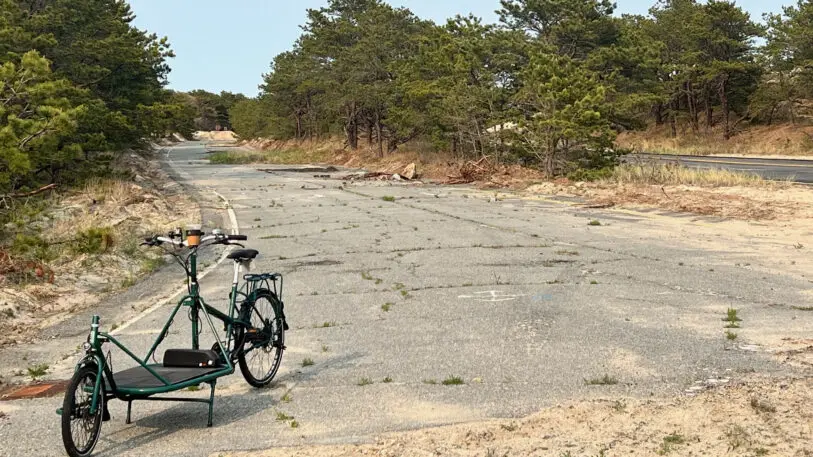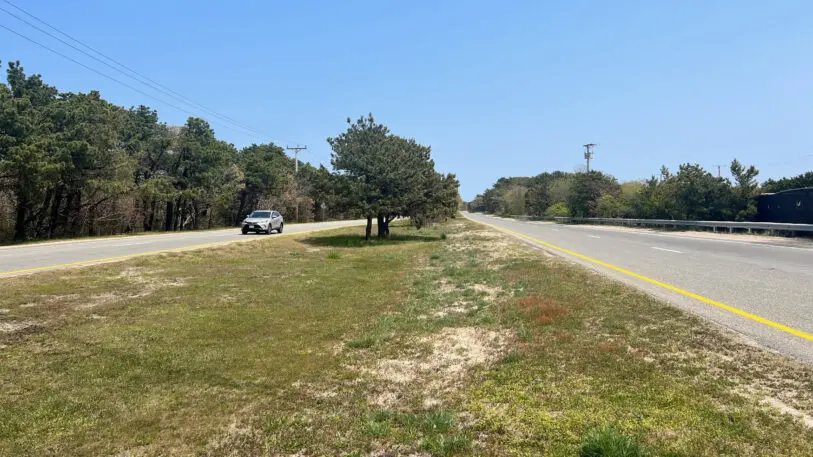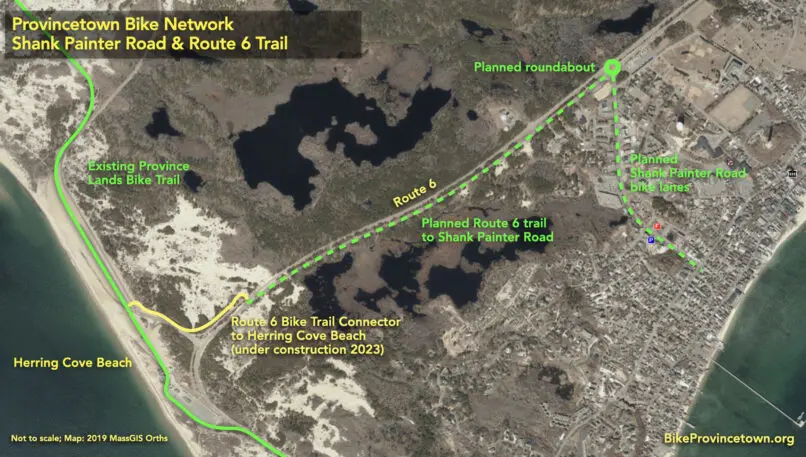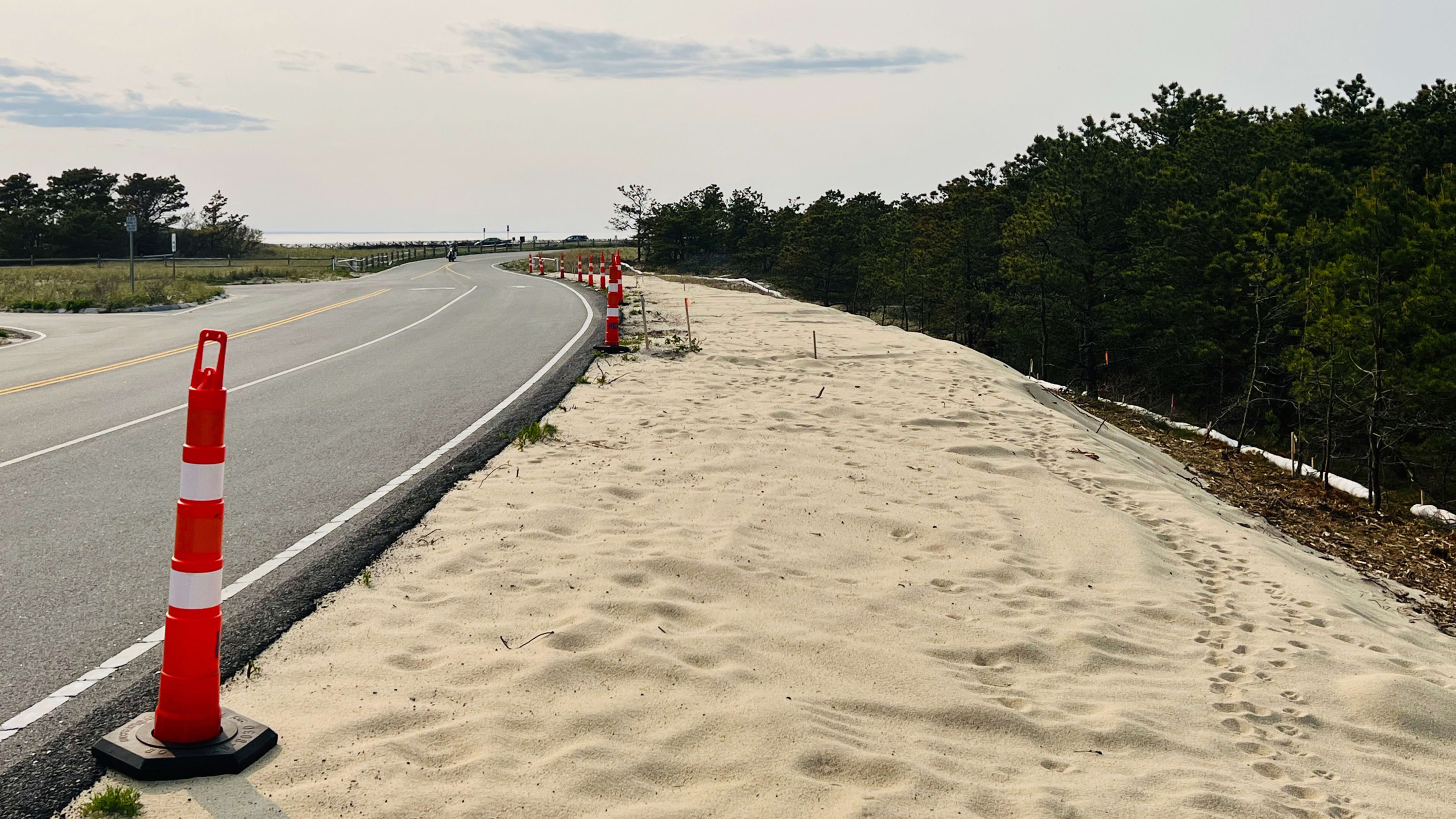More than half a century ago, when a four-lane highway was built on the tip of Cape Cod in Provincetown, Massachusetts, planners envisioned that the area would be heavily developed. But then the Cape Cod National Seashore was approved, protecting the coast from new construction. The highway got little use.

“You just didn’t need that much [road space] for people who are just going to the beach,” says Rik Ahlberg, chair of the Provincetown Bicycle Committee. “That happened in the ’50s and the ’60s, so we’ve had this giant highway out there for a long, long time.” A traffic study found that even at peak times, the number of cars could easily be accommodated by a regular two-lane street.

An approved plan calls for two southbound traffic lanes along a 1-mile stretch of the highway to be converted into a car-free path for biking and walking. On the other side of a wide median planted with trees, the northbound lanes would become a slower two-way street.
The town approved the plan in 2017 and had a design ready by 2019, though the pandemic paused the planning process at the state level. The state will have a public hearing later this month. Since funding is already in place, the transformation can begin once final design approvals are made.
When the highway is reconfigured, people will be able to bike from the center of the small town out to a coastal trail at the beach. A related project will add bike lanes and sidewalks to a crosstown road that connects to the transformed section of the highway. Along the road, people on bikes or on foot will have new access to a nature preserve and a wildlife sanctuary. “It has walking trails where people love to go, but right now they just drive their cars there,” Ahlberg says.

Eventually, the car-free path could also extend in the other direction, toward the next small town. The highway covers 5 miles through Provincetown, and then another 5 miles after the town of Truro, before narrowing down to a two-lane road; Provincetown plans to begin a feasibility study to see if the entire length within its own town limits could be converted.
The situation is unique because the highway was so overbuilt and underused. “We’re also a small New England town, so we’re used to small New England roads,” Ahlberg says. “And we’re much less car dependent than folks are in other places.”
Still, he says, it’s really just a larger version of the type of “road diet” that has become commonplace in many urban areas. “Traffic engineers love to do traffic counts,” he says. “Then you apply some local knowledge and local experience and say, ‘Do we really need all those lanes?'”
Recognize your brand’s excellence by applying to this year’s Brands That Matter Awards before the early-rate deadline, May 3.
